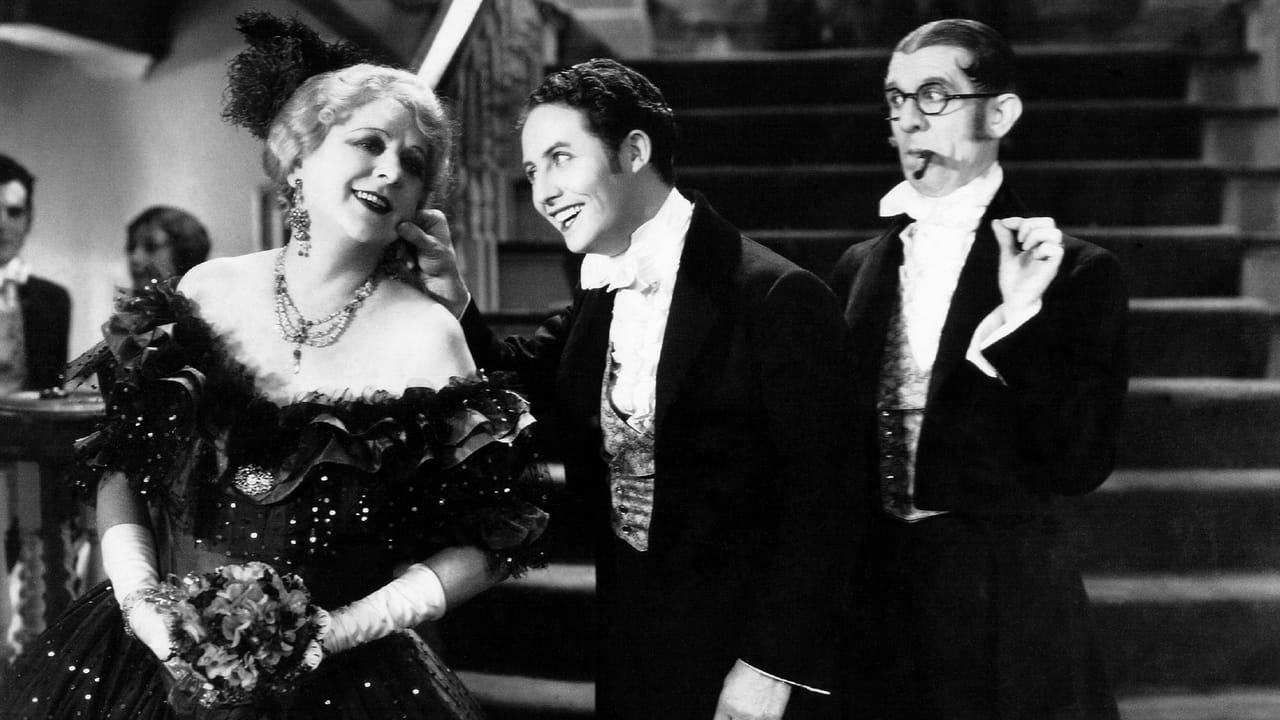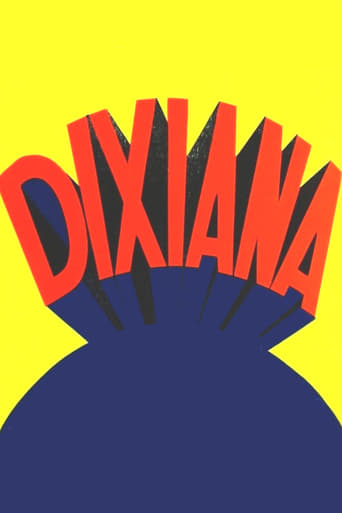

This movie is the proof that the world is becoming a sick and dumb place
... View MoreThis movie was so-so. It had it's moments, but wasn't the greatest.
... View MoreI am only giving this movie a 1 for the great cast, though I can't imagine what any of them were thinking. This movie was horrible
... View MoreThe movie's not perfect, but it sticks the landing of its message. It was engaging - thrilling at times - and I personally thought it was a great time.
... View MoreToday's audiences just don't get vaudeville or burlesque humor for the most part, and they certainly don't understand the social mores of the past. For a common entertainer like the title character (played with gusto by Bebe Daniels) to fall in love with a Southern aristocrat (Everett Marshall) and for him to return her affections would shock society, and indeed it does. His Vaugnerian mother (Jobyna Howland) is one of those larger than life dowagers, a woman of tremendous size (in weight and height), who, like Henry Higgins described in "My Fair Lady", has a voice that shatters glass. Howland's demure husband (Joseph Cawthorn) isn't afraid to stand up to her every now and then since he holds the purse strings, but when size comes down to it, she always wins. Gambler Ralf Harolde is also determined to see that Daniels' common past keeps her and Marshall apart, even if it means destroying him in a card game.Along for the ride in this lavish early musical is the comedy team of Bert Wheeler and Robert Woolsey, then featured performers in films, not quite the headliners of their corny but entertaining second features with titles like "The Nitwits" and "Silly Billies". (They were even featured in a lavish musical called "The Cuckoos", released the same year as this.) Wheeler and Woolsey aren't as full of spitfire wisecracks here as they later would be, although their recurring gag of the "ouch" game is amusing as is the threat of a duel where the be-speckled Woolsey incites squeaky voiced Wheeler to keep hitting him with a glove, ANY glove. Woolsey leads the chorus girls in a very amusing musical number ("A Lady Loved a Soldier") while other lavish musical numbers pop up here and there, although they seem more modern than the era this is supposed to be set in. Dorothy Lee once again plays Wheeler's Olive Oyl-voiced love interest and shares a comic duet with him as well.More of a historical interest for classic movie buffs than for general interest, "Dixiana" isn't a "Show Boat" by any means, but there have certainly been far worse musicals about the old South and certainly ones that were more offensive with racial stereotypes. Bill Robinson pops in for a musical number as well. By 1930, the cameras were beginning to speed things up a little, so this isn't as static as the previous big RKO operetta ("Rio Rita", featuring Daniels, Wheeler and Woolsey, and Dorothy Lee) yet work was still in process of getting the microphone to move along with the camera so movie musicals like this (on the verge of being dead for a few years) wouldn't seem like filmed stage plays.
... View MoreAfter the success of "Rio Rita" RKO planned an expensive version of Victor Herbert's "Babes in Toyland" for their new comedy sensations, Wheeler and Woolsey. Production was suddenly called off in favour of a project that reunited director Luther Reed, stars Bebe Daniels, Dorothy Lee etc and composer Harry Tierney and substituted Rio Rita's south of the border setting for New Orleans and Mardi Gras - "Dixiana". But instead of a big hit and in spite of kind reviews Radio was left with a big flop. The leading man was quickly blamed - a bit unfairly. When John Boles proved unavailable, the studio needed another stirring singer to cope with "Dixiana"'s demanding score and thought they had found him in Everett Marshall whose dashing looks and solid baritone had already won him applause at the Metropolitan Opera. Unfortunately he was definitely not at ease before the camera and Bebe Daniels, who was already upset by the lack lustre score and one dimensional role, could see that Marshall was not going to do her any favours in the leading man stakes!!!Jobyna Howland, so hilarious in "The Cuckoos", is hardly seen after the first half hour. Wheeler and Woolsey, in my opinion, an acquired taste, were already laborious in their comedy routines, including one involving chamber pots and another in which they kick people who pick up cigars, seemed never ending. Dorothy Lee's character Nanny turns up out of the blue in mid movie as a love interest to Wheeler's Peewee but she and Wheeler do get to sing and dance the cutest routine "My One Ambition is You". It starts out with shenanigans on a spiral staircase, then a sweet little gavotte and finishes with Nanny losing her hooped skirt and, oblivious, skipping off with the lovestruck Peewee.The movie gets off to a rousing start - after singing the stirring "Mr. and Mrs. Sippi" over the opening credits, Carl (Everett Marshall) journeys to New Orleans to see Dixiana. She is a carnival queen and Bebe Daniels makes a startling entrance - she breaks out of a giant egg singing "Am I Your Baby Now" - but to whom?? It seems Carl has a rival in the form of Royal Montague (Ralfe Harold), a powerful New Orleans gambler. When Royal indicates that Dixiana is not for the likes of the upper crust Carl, Carl takes her and her two side kicks, Ginger and Peewee to his father's plantation. He keeps their theatrical background a secret, announcing them as his distinguished guests. At the welcoming party the songs come thick and fast - "Here's to the Old Days" - Carl says goodbye to his bachelor days, Dixiana questions her worthiness with "A Tear, a Kiss, a Smile". During the party Peewee accidentally gives Dixiana's profession away and after a most unholy scene Mrs. Van Horn (Howland) banishes the trio from her home. When they return to the carnival Royal, who controls the carnival, commands the owner not to re-employ Dixi or her pals - he gives them a job in his gambling house.Once Dorothy Lee makes her appearance she quickly becomes the star - she is fresh, vibrant and cute. Bebe Daniels tries but she is really hampered by a Southern accent as thick as treacle. Ralfe Harold is good as well, although it's not hard to rise above this sort of material. Bill "Bojangles" Robinson makes everything worthwhile. His effortless and stylish stair dance (you can hear every beat of his taps) to "Mr. and Mrs. Sippi" during the film's Technicolor finale - rises above this film, which is a Mardi Gras mess. Even the movie's big song "Guiding Star" is completely forgettable.
... View MoreI am amazed that there are people in the film community who show any respect for this dated, awkward, racist film by giving it a "7" as a majority of the IMDb viewers have. The bonus that attracted me was the color version of Bill Robinson ("Bojangles") tap dancing in a carnaval scene. After suffering through the histrionic throes of unrequited love by the heroine, the wooden performance of the lead (a Metropolitan Opera reject), and the dull and obvious comic chatter of the comic duo, finally comes the big scene. Three minutes. Some steps, some synchronization and... what happened? This film is best relegated to the "classics" trash heap for occasional viewing by students of cinema history thankfully long dead.
... View MoreA real artifact of the earliest talkies and musicals, which includes the first two-strip Technicolor (the last half of the movie). The romance between a New Orleans cabaret singer (Bebe Daniels) and the scion of a plantation (Everett Marshall) is your basic boy-meets-girl, boy-loses-girl-due-to-misunderstanding-her-selfless-action, boy-gets-girl-back story......all this interspersed with singing, dancing, vaudeville routines (Wheeler & Woolsey), circus acts, chorus girls, contortionists, evil machinations of an oily villain, a near duel, and superb tap-dancing (Bill Robinson)!The dialog and acting are painfully weak and the storyline lurches roughly from scene to scene - often with little sense or continuity. The 75-year-old film is sharply dated by several instances of slaves in the background singin' and workin' happily for their beloved master and being called "boy" instead of by name. The impending Civil War is totally ignored. Still, I recommend "Dixiana" as valuable viewing for its historical Technicolor sequence as well as its illustration of the then-prevailing movie fiction of happy slaves working for benign masters in the sweet and gentle South.
... View More